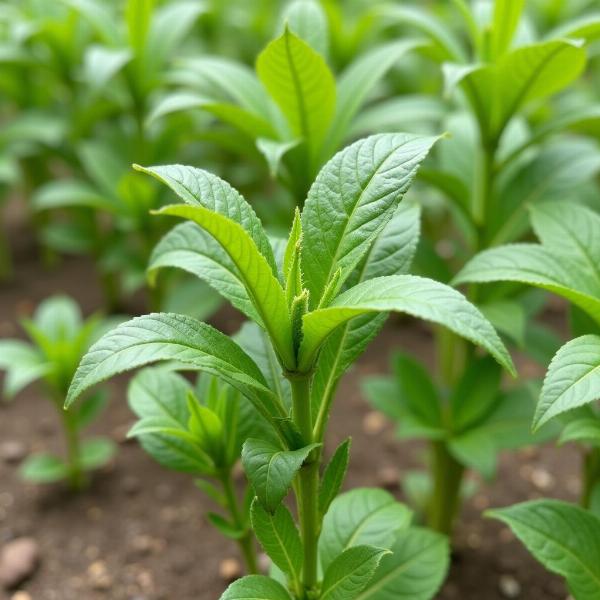Cell sap, a crucial component of plant cells, plays a vital role in their growth, development, and overall health. Understanding its meaning in Hindi is essential for anyone studying botany or plant biology. This article delves into the meaning, composition, functions, and significance of cell sap, providing a comprehensive understanding of this vital plant fluid.
What is Cell Sap and its Hindi Equivalent?
Cell sap, also known as cytoplasm’s liquid phase, refers to the fluid present within the large central vacuole of plant cells. In Hindi, cell sap is referred to as “कोशिका रस” (koshika ras), where “कोशिका” (koshika) means cell and “रस” (ras) means juice or sap. This fluid is a complex mixture of water, dissolved organic and inorganic molecules, including sugars, amino acids, minerals, and pigments. The composition of cell sap varies depending on the plant species, age, and environmental conditions. It contributes significantly to the turgor pressure within plant cells, maintaining their shape and rigidity.
Functions of Cell Sap: A Closer Look
Cell sap performs several crucial functions that are essential for plant life. It acts as a storage reservoir for water, nutrients, and waste products. The sugars and amino acids stored in the cell sap serve as an energy source for the plant. The pigments present in the cell sap contribute to the color of flowers and fruits, attracting pollinators and seed dispersers. Furthermore, cell sap plays a crucial role in maintaining the osmotic balance and turgor pressure within plant cells.
The Role of Cell Sap in Plant Growth and Development
The stored nutrients and water in the cell sap are essential for plant growth and development. The osmotic pressure maintained by the cell sap allows the plant to absorb water from the soil, facilitating cell expansion and overall plant growth. The presence of specific ions and molecules in the cell sap can also influence various metabolic processes within the plant.
Importance of Cell Sap in Plant Physiology
Cell sap is fundamental to plant physiology. It plays a key role in maintaining cell turgidity, which is crucial for supporting the plant’s structure and preventing wilting. The storage of waste products in the cell sap helps to detoxify the cell and prevent the accumulation of harmful substances. Additionally, the presence of specific enzymes and other molecules in the cell sap can contribute to various biochemical reactions within the plant.
Cell Sap and its Response to Environmental Stress
The composition of cell sap can change in response to environmental stress. For example, under drought conditions, the concentration of sugars and other osmotically active solutes in the cell sap increases, helping the plant retain water and maintain turgor pressure. Similarly, under conditions of nutrient deficiency, the cell sap may accumulate specific ions to compensate for the lack of nutrients in the environment.
 Cell Sap and Environmental Stress
Cell Sap and Environmental Stress
Conclusion: The Essence of Plant Life
Cell sap, कोशिका रस, is far more than just a fluid within plant cells. It’s a dynamic and essential component that plays a crucial role in plant life, from growth and development to responding to environmental challenges. Understanding the composition, functions, and significance of cell sap is fundamental to appreciating the complexity and resilience of plant life.
FAQ: Common Questions about Cell Sap
- What is the main component of cell sap? Water is the main component of cell sap.
- Where is cell sap found in a plant cell? Cell sap is found within the large central vacuole of plant cells.
- What is the function of cell sap in plant cells? Cell sap stores water, nutrients, and waste products, maintains turgor pressure, and plays a role in various metabolic processes.
- What is the Hindi word for cell sap? The Hindi word for cell sap is कोशिका रस (koshika ras).
- How does cell sap contribute to plant growth? Cell sap provides the stored nutrients and water necessary for cell expansion and overall plant growth.
- How does cell sap help plants cope with stress? The composition of cell sap can change in response to environmental stress, helping plants adapt and survive.
- Why is it important to understand cell sap? Understanding cell sap is crucial for comprehending plant physiology, growth, and adaptation to the environment.
Meaning-Hindi.in: Your Expert in Hindi Language and Culture
Meaning-Hindi.in is your premier destination for all your Hindi language needs. We offer a wide range of professional translation services, from business and legal documents to technical manuals and educational materials. Our team of expert linguists ensures accurate and culturally sensitive translations, bridging the language gap and facilitating effective communication. Whether you need website localization or quick document translation, Meaning-Hindi.in is here to help. Contact us today at [email protected] or +91 11-4502-7584.